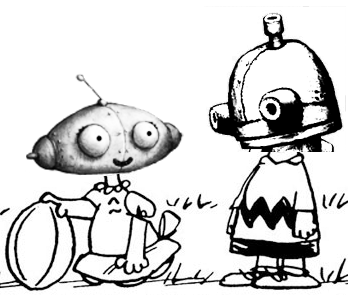In anticipation of the movie “300 – Rise of an Empire” I recently revisited the original 300 movie. There is little argument that it is one of the most artistic and gory takes of ancient Sparta ever made. It is an underdog story where the Spartans, led by King Leonidas (Gerard Butler) fight against impossible odds against the invading Persians, with only their ability as warriors and (spoiler alert) local geography to help them.
The first time I saw this film, like most of the audience in the theatre I was thrilled and rooted for the outnumbered Spartans. The movie was aspirational, because you end up identifying with the brave, powerful and chiseled warriors who struggle against the invading hordes. The Persians, while great in number, are often deformed, or somehow freakish in appearance, including their pierced and androgynous leader, Xerxes (Rodrigo Santoro). At first glance, it might seem pretty obvious who are the good guys and who are the bad guys.
This last viewing of it, however, I changed my mind. This did not come to me slowly after reflecting carefully after having seen it, instead it was more of a thunderclap epiphany during the scene where they all chant in unison. At that moment, the light went on, and I suddenly saw the movie in an entirely different light.
(From Drew’s Script-O-Rama)
What is your profession?
I’m a potter, sir.
And you, Arcadian.
What is your profession?– Sculptor, sir.
– Sculptor.– And you?
– Blacksmith.Spartans! What is your profession?
…and it is this point that the Spartans reply in perfect unison and I realized they were a society of perfect conformists.
For a society to unite against an enemy, it helps to have a common set of goals and values so you can move as one to defend yourself. In the case of the Spartans in this story, these values are (in no particular order) strength, bravery and um…more strength. In the case of these Spartans, their common values are so uniformly ingrained into their society they have become a group of űber conformists. This is the moment of the film where I realized that not only this group of warriors are exactly the same, but their entire culture praises a certain, narrow set of values to the point of atrocity. It has gotten to the point where I knew the villains in the story, and they were not Persian.
Most obvious of all, this is a group that kills a baby if it does not meet their perfect ideals. And we’re rooting for them? Bizarrely, the flag the Spartans raise in their fight is that of ‘freedom’. Freedom to be what, exactly? The freedom to be just like everyone else or get thrown off a cliff, it seems. And here we are cheering them on as if our eyeballs have some sort of Stockholm Syndrome.
There is a deliberate irony to the hunchbacked Ephialtes (Andrew Tiernan), who betrays the Spartans after being promised riches and women. He is technically Spartan, but according to their custom should not have even lived. Xerxes takes Ephialtes in, and becomes like a hermaphroditic “wing man” who has your best interests at heart, and accepting of all types, regardless of their difference of appearance.
It behooves the Spartans to defend their territory against invaders, but think about what values they are defending. You might think that we can’t judge by the standards of today: In a brutal, kill or be kill era, pure strength and toughness are prized qualities. Given that the Spartans appear to ultimately lose, I guess by that yardstick, even they fail their own test of strength at the hands of those who they would not have deemed to have lived more than a few days old.


hmm interesting view. One could argue that Western culture has pretty much reached a state similar to Sparya, but with the all-mighty buck replacing some of the values that Spartan’s values